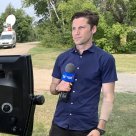Justin Trudeau’s announcement at Cowessess First Nation on Tuesday certainly is historic, but two advocates said a lot more needs to be done for the chance to be meaningful.

The Prime Minister, alongside Chief Cadmus Delorme and Saskatchewan Premier Scott Moe, signed an agreement crystallizing a plan Cowessess already has in place to manage its own child welfare system, to ensure no child is removed from their community.
Trudeau pledged almost $39 million for the initiative.
Cindy Blackstock, executive director of the First Nations Child and Family Caring Society, a child welfare organization, said undoing the steps taken by past governments in Canada requires a lot more action.
“Just a couple of weeks ago, Canada was in court fighting First Nations children from receiving Jordan’s Principle help off reserve,” she said, speaking from Prince George, B.C.
Jordan’s Principle is a rule requiring different levels of government to first help an Indigenous child, to provide the necessary funding and services, and then decide who pays later.
It’s named after Jordan Anderson, an Indigenous boy who died when he did not receive appropriate medical treatment because the federal and provincial governments couldn’t agree who should pay.
- Life in the forest: How Stanley Park’s longest resident survived a changing landscape
- Bird flu risk to humans an ‘enormous concern,’ WHO says. Here’s what to know
- Roll Up To Win? Tim Hortons says $55K boat win email was ‘human error’
- Election interference worse than government admits, rights coalition says
Blackstock told Global News she’s been fighting the federal government in court for 14 years to secure equitable funding for Indigenous children.
“There’s a couple of really contradictory signs coming from the federal government about its support for First Nations jurisdiction, in terms of funding,” she said.
“It’s worrying when the federal government is out there striking agreements without that same kind of accountability.”
She said the federal government needs to stop making symbolic gestures, that it must fund the areas that drive the overrepresentation of child maltreatment and then meaningfully negotiate self-determination agreements in children’s services with First Nations across the country.
Mount Royal University Associate Vice-President Linda ManyGuns told Global News meaningful progress needs to involve undoing the damage the welfare system has caused.
“The (welfare) system is a failure, and the (federal and provincial governments) have to recognize that,” she said.
“An identity crisis is probably one of the primary underlying conditions our suicide rates and for the extreme drug and alcohol abuse.”
As of 2016, there are more Indigenous children in child welfare across the country than there ever were in residential schools.
She called Tuesday’s announcement “significant and absolutely critical,” stating many other First Nations will be watching the developments closely.
She said she hopes similar agreements are signed across the country, and Trudeau did say he hoped for the same during the ceremony.
Blackstock is more cautious. She said she believes the federal government will try to shirk their responsibilities. But she told Global News she is hopeful for Cowessess First Nation
— with files from Katie Dangerfield, Emerald Bensadoun and the Canadian Press




Comments